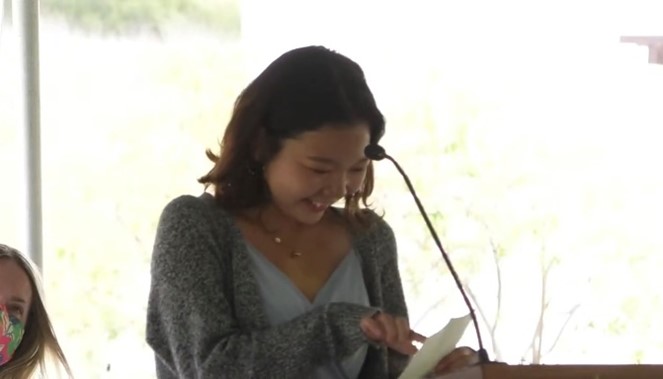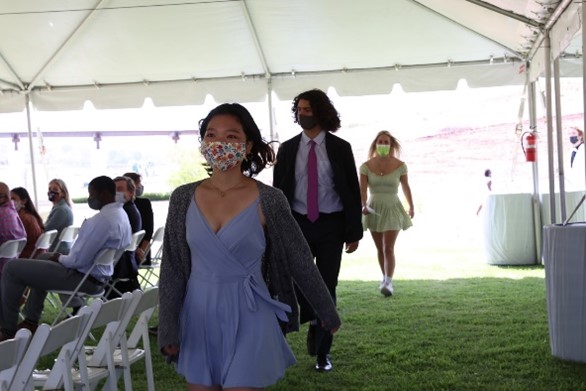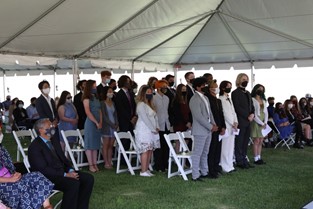|
The words can, could, will, would, shall, should, may, might, must, ought to, had betterexpress various shades of meaning ? ability, urgency, doubt, necessity, possibility.
can/can’t =cannot + verbis used for situations in the present and could/could=couldn’t + verb in the past. Examples:
a) I can play the piano, but I can’t sing. (ability) b) It can be very windy in October. (possibility)
c) You can leave earlier today. (permission) d) I couldn’t meet you yesterday. (ability ? past)
*Sometimes we use be able to + verb or not be able + verb as a synonym for can to express ability. The verb be changes to I am/you are/ he-she-it is/we are/ they are in the present, to I was/you were/ he-she-it was/ we were/ they were, and to will be in the future. Example: I’m able to finish this project today. They were able to see me yesterday.
may/may not and might/might not + verb are used only in the present.
a) May I help you? (formal request) b) It may rain tomorrow. (possibility)
You may not reveal this information. (formal permission)
d) She might be sick. (possibility but with more doubt than may)
Should/ought to + verb have the same meaning, but ought to is used rarely.
a) Everyone should exercise regularly. (advice/opinion) b) I should be here soon. (expectation)
c) Parents should/ought to protect their children. (duty/obligation)
had better= ‘d better/had better not means strong advice, almost like a warning.
a) We had better wait here. b) You’d better not be late. c) She had better call you.
Must/must not; have to/ don’t have to/ have got to express various degrees of necessity in present tense. The word must has additional meanings and is more formal.
a) You must pass this exam. (strong necessity) b) She has to attend that party. (necessity) c) I’ve got to see her. (necessity; have=’ve) They must be happy to own this beautiful house. (certainty) d) You must not make noise here. (prohibition)
would/wouldn’t + verb (used in present and past depending on the meaning)
a) Would you help me with this project? (polite request - present) b) He would always make fun of us. & They would do a ton of homework in college. (past habitual activity) c) Would you mind if I open the window to let some fresh air in? (permission)
I used to come here often. He didn’t use to like meat. Did you use to play tennis?
would rather =’d rather + verb (present)
I’d rather play video games than study for my exam. (preference)
will=’ll/won’t + verb (present)
Will you marry me? (request) They’ll do it for you. (offer) His computer won’t start. (something isn’t working)
shall + verb (used mostly in British English or in very formal situations)
What shall we do this weekend? (what do you want to do?)
To express past ideas with modals, we use could have/would have/should have/must have/may have/might have + past participle verb
a) I could have called you last night. (but I didn’t) b)He must have been very hungry (that’s why he ate three hamburgers) c)He may have been ill. (he didn’t show up) d)I should’ve visited you.
|



 アメリカをこよなく愛し、アメリカを知る大先輩から、かつて「挑戦をやめるなんて、いつでもできる。だれにでもできる。「考えて考えて、苦しんで苦しんでなすべきことは、塵も残さず全部やることだ。ただちにやることだ。」と励まされたことがある。そして、「何度行き詰ろうと、頭上に『朝』は、毎日、来るではないか。ここは、『トライ・アゲイン(さあ、もう一度)の国』なのだ。」と諭してもらったこともあった。「道がないなら、まず自分で、『道をつくる!』と決めることだ。」と生き方の基本を教えていただいたのも忘れられない。
アメリカをこよなく愛し、アメリカを知る大先輩から、かつて「挑戦をやめるなんて、いつでもできる。だれにでもできる。「考えて考えて、苦しんで苦しんでなすべきことは、塵も残さず全部やることだ。ただちにやることだ。」と励まされたことがある。そして、「何度行き詰ろうと、頭上に『朝』は、毎日、来るではないか。ここは、『トライ・アゲイン(さあ、もう一度)の国』なのだ。」と諭してもらったこともあった。「道がないなら、まず自分で、『道をつくる!』と決めることだ。」と生き方の基本を教えていただいたのも忘れられない。
 今は、大きな変革の時代。その激動の中で臆するか。それとも、「面白い時代」が来たと思えるか。それで、自分の人生が全く違った展開をしていくとも、厳しくも温かな大先輩は、全魂を傾けて、噛んで含めるように話してくれたことが懐かしい。留学生の皆様は、アメリカでの人生への第一歩を踏み出す決断をされた大きな深い勇気の人たち。留学されたからには、更に次の自分の人生の大航海の中で第二章へと出航される時を迎えられていくことでしょう。
今は、大きな変革の時代。その激動の中で臆するか。それとも、「面白い時代」が来たと思えるか。それで、自分の人生が全く違った展開をしていくとも、厳しくも温かな大先輩は、全魂を傾けて、噛んで含めるように話してくれたことが懐かしい。留学生の皆様は、アメリカでの人生への第一歩を踏み出す決断をされた大きな深い勇気の人たち。留学されたからには、更に次の自分の人生の大航海の中で第二章へと出航される時を迎えられていくことでしょう。





